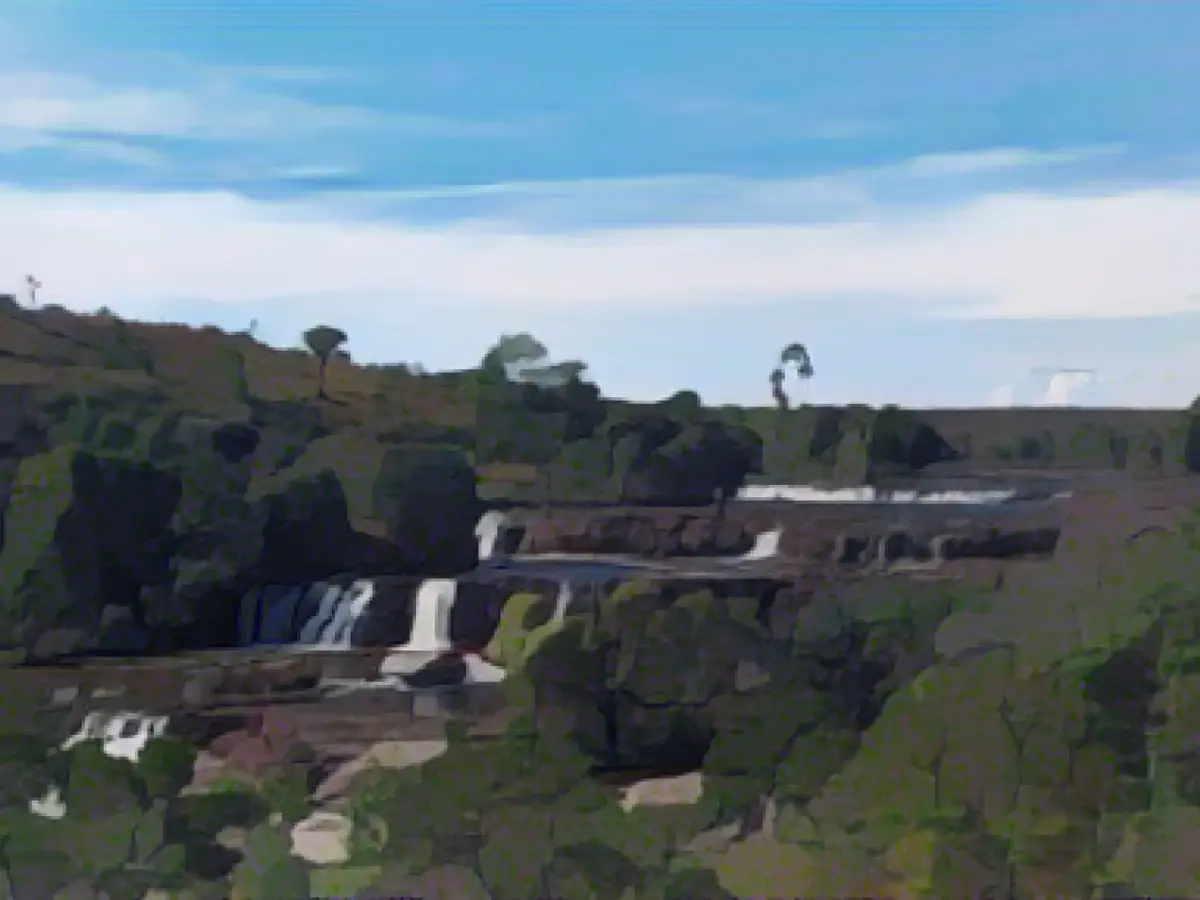Tensions rise between Venezuela and Guyana over oil-rich border region
The dispute concerns the Essequibo region, which has belonged to Guyana for more than a century. Venezuela also claims the area, which makes up around two thirds of Guyana's territory, as its own.
"Together with the Guyana Armed Forces, the US Southern Command will conduct air operations in Guyana on December 7," the US embassy in Georgetown explained. The flights are part of "routine engagements and operations".
Venezuela's Defense Minister Vladimir Padrino López condemned the announcement on the online service X, formerly Twitter, as a "provocation" and spoke of a "further step in the wrong direction". His country would "not be distracted" by the "recovery" of Essequibo.
According to the UN Security Council 's updated schedule, the body will discuss the issue in camera on Friday. In a letter to the Security Council Presidency, Guyana's Foreign Minister Hugh Todd spoke of a "serious matter that threatens international peace and security".
Brazil's President Luiz Inácio Lula da Silva expressed increasing "concern" about the tensions at the borders in the north of his country. At a meeting of the South American Mercosur states, Lula said: "If there is one thing we do not want here in South America, it is war." The Brazilian army announced that it would increase its presence in the cities of Pacaraima and Boa Vista in the north of the country in order to "guarantee the inviolability of the territory".
Several South American countries called on Venezuela and Guyana to settle the dispute peacefully. In a joint statement, Argentina, Brazil, Paraguay, Uruguay, Chile, Colombia, Ecuador and Peru warned against "unilateral actions" that could "lead to additional tensions" and called on both parties to negotiate.
Venezuela has claimed the Essequibo region for itself for more than a century. Around 125,000 of the 800,000 Guyanese live there. Guyana, a former British and Dutch colony, points out that the current border was determined by a court of arbitration in 1899. Venezuela, on the other hand, claims that the Essequibo River in the east of the region forms a natural border that was already recognized in 1777.
Caracas' desires increased in particular after the oil company ExxonMobil discovered an oil deposit in the area in 2015. In October, another significant oil discovery was made in the region, increasing Guyana's reserves to at least ten billion barrels - more than those of oil-rich Kuwait or the United Arab Emirates.
More than 10.4 million of the 20.7 million Venezuelans eligible to vote took part in a non-binding referendum on Sunday and voted in favor of Venezuela's claim to Essequibo. Shortly afterwards, Venezuelan President Nicolás Maduro called for the area to be declared a Venezuelan province by law and for licenses to be issued for oil production.
Read also:
- This will change in December
- German activists speak out in Dubai on suffering in Israel and the Gaza Strip
- Nuclear fusion - hype or solution to energy problems?
- Budget crisis fuels debate on citizen's income - Bas warns against populism
- The dispute between Venezuela and Guyana over the oil-rich Essequibo region has raised concerns in Brazil, making President Luiz Inácio Lula da Silva express his "concern" about the rising tensions.
- Because of the ongoing dispute, Guyana is expected to bring the issue before the United Nations Security Council, urging it to discuss the matter and address the "serious matter that threatens international peace and security".
- The George Town-based US embassy announced that the US Southern Command will conduct air operations in Guyana on December 7, a move that Venezuela's Defense Minister Vladimir Padrino López considered a "provocation".
- As a result of the border tension, Brazil increased its military presence in Pacaraima and Boa Vista, aiming to "guarantee the inviolability of the territory" and prevent any potential escalation of violence.
- The controversy between Venezuela and Guyana is not new, with Venezuela claiming the Essequibo region for over a century, while Guyana relies on the 1899 court of arbitration decision that determined the current border.
- With the discovery of large oil deposits in the Essequibo region by ExxonMobil in 2015, Venezuela's interests in the area have grown, increasing the need for an amicable resolution to the dispute.
- After another significant oil discovery in October, Guyana's oil reserves stood at over ten billion barrels, making it richer in oil than oil-rich countries like Kuwait or the United Arab Emirates.
- In response to the continued tension, several South American countries urged Venezuela and Guyana to engage in peaceful negotiations, warning against unilateral actions that could exacerbate the situation and lead to further tensions.
- Despite the international pressure to resolve the border dispute peacefully, Venezuelan President Nicolás Maduro called for the area to be declared a Venezuelan province by law, emphasizing the importance of defending Venezuela's claims in the oil-rich Essequibo region.
Source: www.stern.de







